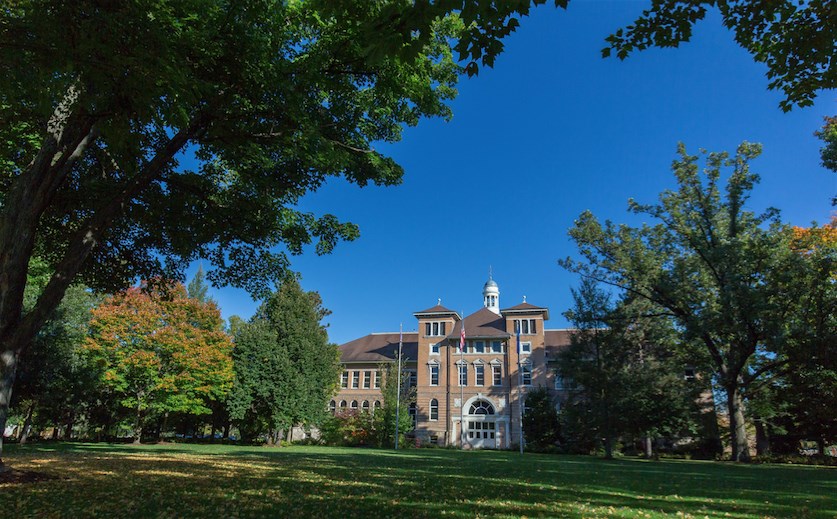UW System Changes Too Piecemeal
Example: UW-Stevens Point reducing liberal arts. System-wide strategic plan is needed.
Piece by piece, without an overall strategic plan, forced by financial constraints, the University of Wisconsin System (UWS) is undergoing reorganization.
The latest major departure from long-established UWS structure is the decision by UW–Stevens Point to focus on STEM majors – science, technology, engineering and mathematics – at the expense of humanities majors in subjects like history and English.
UW–Stevens Point will still offer courses in those disciplines, but will concentrate its resources where the job markets are hot. Thirteen humanities majors will go, while 16 STEM programs will be added.
This pragmatic decision is causing uproar among defenders of liberal arts education. They make a good argument that courses in literature, languages and history help to shape critical thinking skills in our future citizenry.
How can an ascending employee lead and manage others without the ability to communicate clearly with well-crafted written and spoken language?
A big part of the pivot at Point has to do with financial resources at several levels. Students are less willing to take on mountains of education debt if there isn’t a well-paying job at the end of the college rainbow.
A second piece is the decade-long series of cuts in state support for the 26 UWS campuses. Most have been forced to make staff cuts to make their budgets work. Some campuses have avoided strategic decisions, choosing instead to let openings go unfilled, to encourage retirements across departments and to curtail expansions of new programs or degrees.
A third factor in forcing a downsizing of staff has been declining enrollments at many campuses. Fewer students, due partly to a declining pool of 18-year-olds, coupled with a strong job market, mean less tuition revenue on the top line. That, in turn, also results in fewer teaching and staff positions.
The budget deficit at Point prior to the changes was $4.5 million.
UW–Madison is an exception. The flagship has the huge revenue benefit of steady enrollments. It has more applications than admissions. It draws out-of-state students at high tuitions. It has support from foundations with more than $8 billion in assets. It receives around $1 billion in research and development funding.
It is a huge positive for the state that UW–Madison is well funded. The challenge for the state’s economy is at the other 25 campuses.
UW President Ray Cross has made two strategic decisions to adjust to the financial realities. He and the UW Regents have consolidated the UW Extension into UW–Madison. That historic institution was intended to extend the resources of the flagship campus to the rest of the state. This move, though, has the appearance of increasing the Madison-centricity of the system.
Cross and the regents also consolidated the 13 two-year colleges into the four-year campuses. UW–Washington County and UW–Waukesha, for instance, will become satellites of UW–Milwaukee on July 1. A lot of internal work is going on to make that transition happen.
This rearrangement can be seen as a first step toward a regional reorganization of UWS. UW–Milwaukee will have more reach and more political support as it makes deeper connections with the prosperity of southeastern Wisconsin.
Hopefully, both Republican and Democratic legislators and regents in the M7 Region will mobilize in making UWM a heavyweight institution as a companion to UW–Madison. UWM is already on that trajectory.
Chancellor Bernie L. Patterson at UW Stevens Point also made a huge strategic decision, choosing to specialize in STEM degrees. Smart. That’s where the best jobs are in today’s world. His move should boost enrollment of pragmatic students and parents.
That’s not to say Point will abandon the liberal arts. Courses will still be offered to complement the STEM degrees.
All of these structural changes are being made to deal with the realities of education funding and career opportunities.
To that point, Foxconn won’t be hiring poets and thespians. It will be hiring 13,000 people with hard skills to offer, ideally in tandem with grounding in liberal arts courses.
What is really needed is a high level commission to pull together a coherent path forward for the UW System. The piecemeal approach lacks strategic clarity.
John Torinus is the chairman of Serigraph Inc. and a former Milwaukee Sentinel business editor who blogs regularly at johntorinus.com.
Op-Ed
-
Wisconsin Candidates Decry Money in Politics, Plan to Raise Tons of It
 Dec 15th, 2025 by Ruth Conniff
Dec 15th, 2025 by Ruth Conniff
-
Trump Left Contraceptives to Rot; Women Pay the Price
 Dec 8th, 2025 by Dr. Shefaali Sharma
Dec 8th, 2025 by Dr. Shefaali Sharma
-
Why the Common Council’s Amended Budget is Good Policy for Milwaukee
 Nov 20th, 2025 by Alds. Marina Dimitrijevic and Russell W. Stamper, II
Nov 20th, 2025 by Alds. Marina Dimitrijevic and Russell W. Stamper, II






















What’s needed is to remove Republicans from power. They are anti education and science.
Do you mean antiscience like pretending a woman can become a “man” and give birth?
What’s needed is to remove Democrats from America. You Marxists don’t educate — you indoctrinate. Do you really think your B.S. in Social Justice Studies and Minor in F’ Whitey amounts to a real education? No wonder you people eat Tide Pods for breakfast.
“Students are less willing to take on mountains of education debt if there isn’t a well-paying job at the end of the college rainbow.”
The statement suggests that Torinus has evidence about what students are willing to do. One possible piece of evidence he might have is that students are staying away from majors like History, English and Philosophy. However, this is not the case at Point. Majors like these are flourishing. This is a judgement made not by students but by outsiders with views about what students ought to like. It is also shortsighted about where the jobs are that students ought to like. We are never presented with evidence that students in these majors are going jobless. Let me give you another example. Among the areas that Point is shutting down in the visual arts is glassblowing. Point is one of the few places in the state where glass blowing can be studied. And, finally, glass blowing, in common with many arts fields, is not a hobby. Glass blowers get jobs. It is important to recognize that all this talk about what is economically feasible or desirable is not evidence-based. It is an expression of some unsupported normative views of the speaker.
The Torinus article tip toes around the system-wide plan that Cross has been carrying out: namely the privatization of the system. Madison will provide the no-cost research and development arm to big business. The rest will provide cheap, skilled labor so businesses won’t have to spend anything on training. As for enrollment declines, Cross pursued policies when he was chancellor of UW Colleges that deliberately decreased enrollment. For a very long time higher ed administrators used projections to gauge enrollments and along with it personnel needs in colleges and universities. This is nothing new so, no, UW administration knew 20 years ago perfectly well how many students would be in the pool today.The enrollment decline is a cats paw in Cross’s game to change the system as secretly as possible and then present the people of Wisconsin with a fait accompli. Cross has to go now! The people of Wisconsin should demand his resignation.